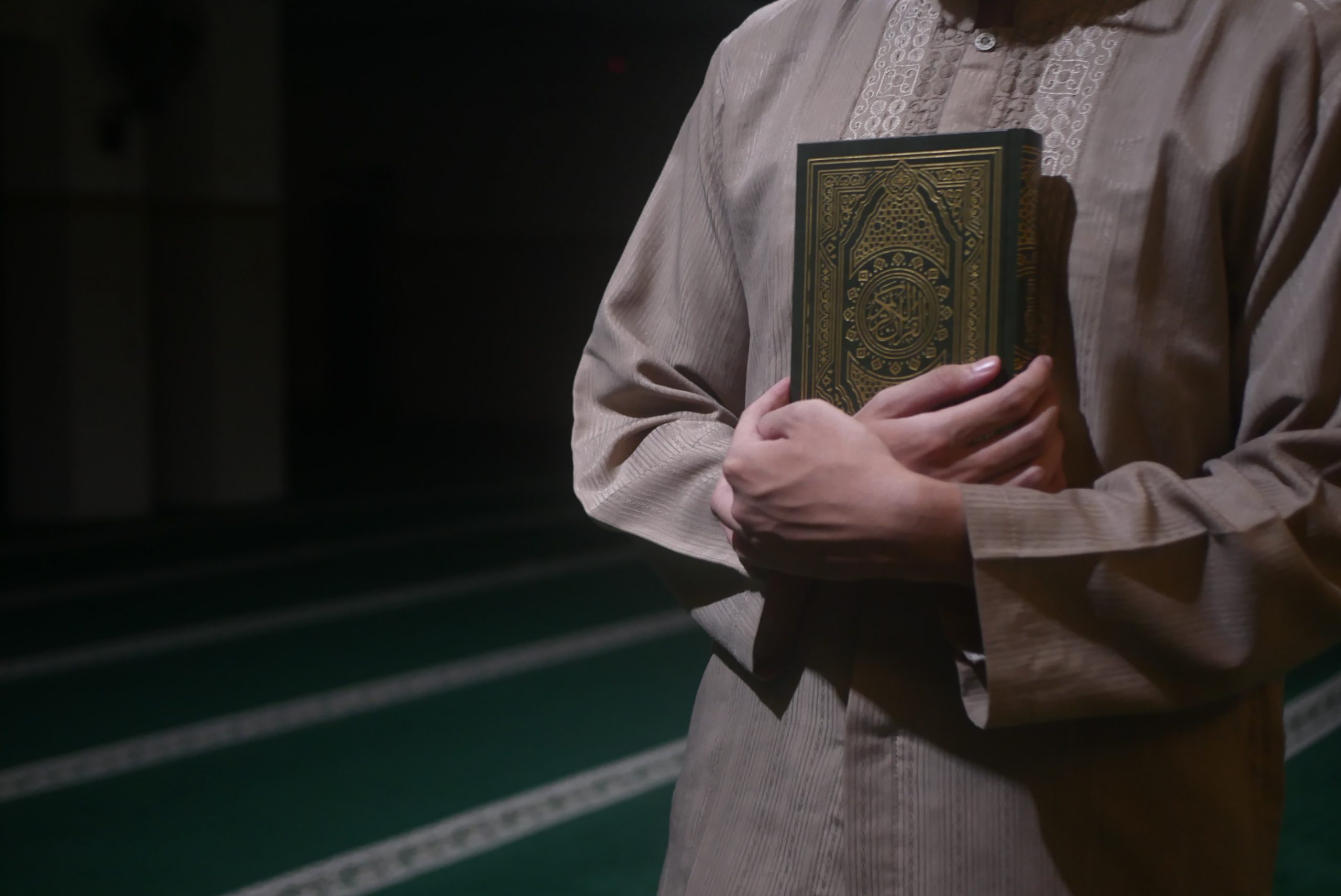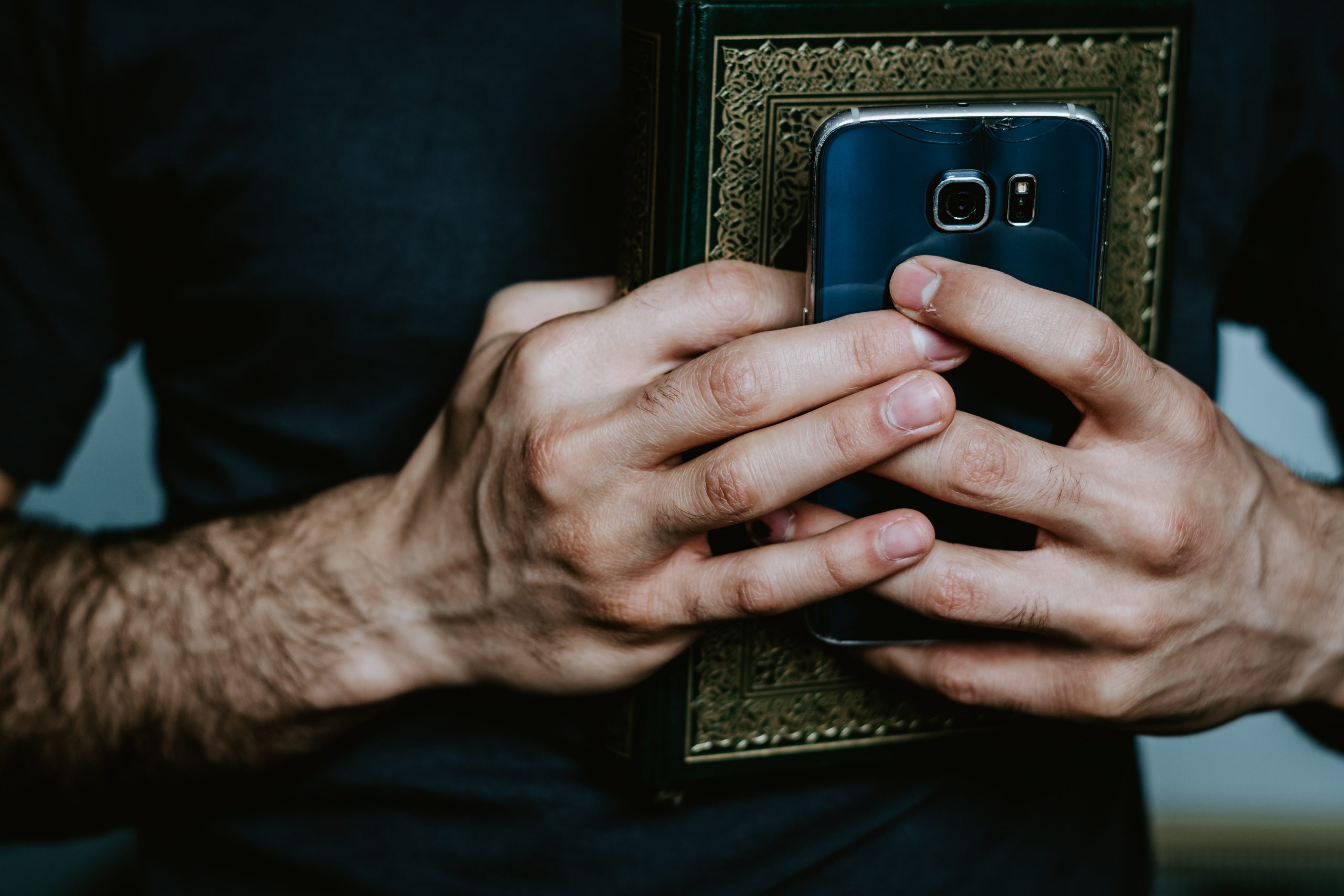#Islam
Seeking Out The Spiritual Underpinnings Of Our Ritual Acts of Worship
Published
By
Monia Mazigh
A few years ago, I went on Haj. It was an emotionally and physically draining experience. While there, I kept a diary and tried as much as possible to be aware of my actions and bring consciousness to my scattered mind, constantly remembering the purpose of my visit.
Gone are the days, when Hajj used to be a sober and exhausting experience where food was scarce as well as water; not to mention the long physical distances between the historical and sacred sites and the overwhelming crowd that one should endure at many sites.
Now, as Muslims living in North America, the picture is totally different. Among others, you can choose between an executive package where you are flown just in time to perform the mandatory rituals: tawaf in Mecca around the Kaaba, a visit to Arafat while relaxing in air-conditioning tents, comfortable tents with all services included in Mina, perhaps a quick visit to Medina and the return within ten days to go back to your professional career; or a gold package in one of those luxurious skyscraper towers just a stone’s throw from the Kaaba where you can delight yourself with jumbo shrimps, grilled lambs chops and syrup-soaked cheese kunafa before heading to pray in the nearby Kaaba (and in case you are worried about the crowd and the heat, you can pray in the prayer room specially built with window glasses that offer a direct view to the black cube-shaped structure where tawaf and prayers take place.)
The many distractions of luxury
Keep supporting MuslimMatters for the sake of Allah
Alhamdulillah, we're at over 850 supporters. Help us get to 900 supporters this month. All it takes is a small gift from a reader like you to keep us going, for just $2 / month.
The Prophet (SAW) has taught us the best of deeds are those that done consistently, even if they are small. Click here to support MuslimMatters with a monthly donation of $2 per month. Set it and collect blessings from Allah (swt) for the khayr you're supporting without thinking about it.

I wouldn’t be exaggerating to say that today is filled with distractions and that the urban landscape of the place isn’t at all helping to make this journey as close to its multiple spiritual meanings; at least the one I personally understood from my readings and interpretations.
I remember sitting on the top roof of the Masjid al-Haram after Salaat al-Asr, and waiting for Salaat al-Maghrib with some female friends; one young woman sitting beside us didn’t stop taking selfies with the tall clock towers behind her. A typical teenager’s reaction that can be totally understood in an image-obsessed world. One of my friends gently advised the young woman to sit and look at the Kaaba, where during tawaf Muslims circumambulate while praising God for His numerous blessings and asking for forgiveness. “… sitting and watching the Kaaba is Ibadat,” my friend kindly reminded the young woman. She was referring to a reported hadith where the Prophet Muhammad 
“Allah showers unto those present in the masjid of Makkah every day one hundred and twenty mercies. Sixty mercies are for those who are performing tawāf, forty for those engaged in salāh, and twenty for those who are merely looking (at the Ka‘ba)” [Al Tabrani]
The young woman wasn’t fully convinced. She was quiet for a few minutes and then she went back to her phone and selfies.
For us in our fifties or mid-forties, we aren’t totally immune from these distractions. The shopping centers a few hundred meters away were appealing to us with their glittering jewelry exposed in the several stores, and beautiful clothes and fragrant perfumes were constantly looking at us from afar. Our phones remind us of dua’ to say but also of missed phone calls with homes and names of people and restaurants to visit. Finding deep spiritual meanings in our rituals is very challenging if not impossible.
What I just described isn’t solely restricted to Hajj and its meaning; it is affecting all of our relationships with our worship rituals and the spiritual meanings associated with these important rituals.
The meanings of fasting
Now we find ourselves immersed in the month of Ramadan; the month of fasting, charity, and good deeds. Our relationship with Ramadan, especially for many women, revolves around food: planning it, talking about it, preparing it, and eating it. Meanwhile, we find very little time for reflection, reading, contemplation, mindful prayers, and discovering new meanings of words or verses while reading the Quran. This incredible physical and emotional experience of Sawm slips from us because we, willingly or unwillingly, have stripped from it many of its spiritual and historical meanings.
Once again, our Islamic rituals that were born in an environment of scarcity, rigor, and simplicity have been taken over and reshaped by an aggressive capitalist consumerist environment where an abundance of food and means gives Ramadan a stamp closer to a food and dessert festival where unfortunately a lot find its way to waste and little time is left to benefit from the fast, both physically and spiritually.
In recent years, there has been a whole hype in popular culture around the “intermittent fasting” phenomenon. Besides the detox beverages and the power food that are rubbed into our noses by nutrition experts or influencers, a lot has been said and is still being discovered about “intermittent fasting”. These present the multiple benefits of “intermittent fasting” like losing weight, helping to stabilize both blood pressure and sugar, as well as many other benefits on the cardiovascular system.
In Islam, we don’t necessarily and always understand or obviously see the benefits of the rituals that we practice. As believers, we obey God’s commands first, and later we look for meanings. For years, I found the popular and common argument that fasting makes us temporarily live in the shoes of the hungry or the poor a bit too simplistic and flatly misleading. Is it always true that we can be compassionate and understanding, only when we go through the same difficult experience? Can’t we be fasting to be controlling our physical desires and improving our health, being conscious of our diet and consumption, and most of all getting closer to God? Do we want our fast to be another “intermittent fast” experience focusing solely on the physical benefits, or can we move beyond and discover other spiritual benefits to fasting?
Religion in a neo-liberal setting
In North American secular societies, there have been several attempts to strip old spiritual traditions from their religious meanings and “market” them as new trends that are beneficial to our health, our minds, and our bodies. The first example that comes to mind for me would be yoga – an ancient millennial Indian ritual-heavy practice immersed in the Hindu tradition, which became a series of body exercises with little or no religious basis. What is even more questionable is the whole consumerist and marketing layers that today surround yoga, making it sound more like a secular fashion that is supposed to calm your mind and body without its strong spiritual basis.
Another example of the repackaging of once heavily spiritual messages into a “well-being” product is the treatment of Rumi and his poetry. From Islam-rich and spiritually-deep poetry with quranic and hadith background, it re-emerged in the West to be “marketed” as soothing and wise with a “light” –or sometimes none– reference to its Islamic roots.
Physical and/or spiritual rituals?
In reality, as human beings, we are in terrible need of both layers -mind and body- to take full advantage of any religious ritual. Fasting without a strong spiritual belief can be perhaps beneficial for the body but would be difficult and impossible to sustain for long days or many years. A strong belief in God, in the hereafter, in the ultimate eternal life, can bring another dimension to any ritual. A dimension that goes beyond the deprivation of the body from its usual meals and drinks and takes it to a higher level of meditation, reflection about the whole purpose of being on earth, on eating, or fulfilling physical desires. Fasting is not only about “feeling like the poor” but rather getting closer to a “superhuman” state; in control of body and mind.
The same thing can be expressed about today’s Hajj experience. Going on pilgrimage and diving oneself into an artificial luxurious environment can make the experience much easier -and for some more enjoyable-, but it can strip it of its radical meaning: understanding the hardship that Hajer 

The same logic can apply to fasting during the month of Ramadan. How can we benefit spiritually and physically from fasting?
Speaking of Hajj and animal sacrifice, Allah 
“Their meat will not reach Allah, nor will their blood, but what reaches Him is piety from you. Thus have We subjected them to you that you may glorify Allah for that [to] which He has guided you; and give good tidings to the doers of good.” [Surah al-Hajj 22;37]
The key word in this verse is “piety”. How can we apply it to better understand our rituals?
Finding piety in rituals

These are important questions that we should discuss in our mosques, in our women’s circles, and in our community Iftars.
There are other examples that I think are worth bringing to this reflection. During tarawih -the evening prayers following the breaking of our fast-, many mosques buy plastic bottles for the worshipers to drink from while they are praying. While the sentiment behind such an act is well-intentioned, I think it is at the same time very problematic. We are buying bottles of water from companies that are polluting our environment. We are helping these companies who are buying sources of water and turning them into profits. Instead, why don’t we encourage the worshippers to bring their own reusable bottles of water and install water fountains where they can refill them?
Those discussions are crucial. How can we live our spirituality surrounded by companies who are looking at us as part of their dividends and portfolio? How can we continue finding spiritual meaning in our rituals when they have been covered with layers of overconsumption and unethical decisions?
How can we be “ethical” in our buying, and consuming, while we accomplish religious acts that are supposed to make us better human beings?
Perhaps, during this blessed month of Ramadan, we should take time and reflect on these issues. Perhaps, we can push ourselves to make small decisions in changing our consumption habits and instead of taking them for granted, ask questions about our needs and how to fulfill them in an ethical manner without depriving ourselves, but also without indulging in luxury or wasteful patterns. This will also undoubtedly make us discover new layers and new meanings of our rituals.
Related:
– Spiritual Poverty And Robotic Rituals – MuslimMatters.org
– More Than A Muslim Shell – How To Break Free From Spiritual Complacency – MuslimMatters.org
Keep supporting MuslimMatters for the sake of Allah
Alhamdulillah, we're at over 850 supporters. Help us get to 900 supporters this month. All it takes is a small gift from a reader like you to keep us going, for just $2 / month.
The Prophet (SAW) has taught us the best of deeds are those that done consistently, even if they are small. Click here to support MuslimMatters with a monthly donation of $2 per month. Set it and collect blessings from Allah (swt) for the khayr you're supporting without thinking about it.
Monia Mazigh is an award-winning Canadian author. She writes in French and English and has published so far, a memoir and three novels. Her latest novel, Farida, won the Ottawa Book Award for French fiction. Her new memoir, My personal journey with a scar…f, an essay/memoir about gendered islamophobia, will be published in 2023. Monia is a columnist with rabble.ca, ONFr+, Islamic Horizons. She published several articles with the Ottawa Citizen, the Globe and Mail, the Toronto Star and other Canadian newspapers.


[Film Review] Time Hoppers: The Silk Road

The Comparison Trap | Night 5 with the Qur’an

Op-Ed: Can Zakat Be Used For Political Campaigning? An Argument In Favor

[Podcast] Faith, Fasting, and Metabolic Wellness with Dr. Saadia Mian

When You’re the Only Muslim in the Room | Night 4 with the Qur’an

How to Make this Ramadan Epic | Shaykh Muhammad Alshareef

[Podcast] The Parts of Being an Imam They Don’t Warn You About | Sh Mohammad Elshinawy

[Podcast] Guardians of the Tradition: Muslim Women & Islamic Education | Anse Tamara Gray

30 Nights with the Qur’an: A Ramadan Series for Muslim Teens

Op-Ed: Bitterness Prolonged – A Short History Of The Somaliland Dispute

The Comparison Trap | Night 5 with the Qur’an

When You’re the Only Muslim in the Room | Night 4 with the Qur’an

When Honoring Parents Feels Like Erasing Yourself | Night 3 with the Qur’an

5 Signs Your Teen is Struggling with Imposter Syndrome | Night 2 with the Qur’an

Who Am I Really? What Surat Al-‘Asr Teaches Muslim Teens About Identity | Night 1 with the Qur’an
Trending
-
#Current Affairs1 month ago
[Podcast] Should Muslims Ally with Conservatives or Progressives? | Imam Dawud Walid
-
#Current Affairs1 month ago
Op-Ed: From Pakistan To Gaza – Why Senator Mushtaq Ahmad Khan Terrifies Power And Zionism
-
#Islam4 weeks ago
How to Make this Ramadan Epic | Shaykh Muhammad Alshareef
-
#Life4 weeks ago
[Podcast] The Parts of Being an Imam They Don’t Warn You About | Sh Mohammad Elshinawy









